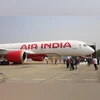The Directorate General of Civil Aviation (DGCA) has directed Air India to reinspect the stowage of Ram Air Turbines (RAT) on all Boeing 787 aircraft whose power conditioning modules (PCM) were recently replaced, reported news agency PTI.
A senior DGCA official said the reinspections were precautionary. “Air India has been advised to reinspect the RAT for stowage for all aircraft whose PCM module was replaced in the recent past,” the official was quoted as saying by PTI.
What’s behind DGCA directive?
The directive comes after two incidents this month. On October 4, a RAT deployed mid-flight on Air India’s Amritsar–Birmingham service (AI-117) just before landing. Five days later, another Boeing 787 operating Vienna–Delhi flight AI-154 was diverted to Dubai following autopilot system failure and multiple technical malfunctions.
What's RAT and PCM?
RATs automatically deploy in case of dual engine or total electrical failure, using airspeed to generate emergency power. The DGCA said Boeing’s recommended maintenance actions were carried out after the first incident, and no discrepancy was found.
PCM is an essential electrical component that regulates and distributes power to onboard systems. The DGCA has further advised Air India to review its 'D Check' maintenance package for any potential discrepancies linked to PCM replacement.
Also Read
The DGCA has asked Boeing to provide a “comprehensive report” outlining preventive measures against un-commanded RAT deployment. It has also sought data on similar global incidents involving Boeing 787s and details of any service difficulty reports from other operators after PCM replacements.
Pilot body calls for audit, fleet grounding
Following the Vienna–Delhi flight diversion, the Federation of Indian Pilots (FIP) wrote to Civil Aviation Minister Kinjarapu Ram Mohan Naidu, demanding that Air India’s entire B787 fleet be grounded and subjected to a special DGCA audit.
In its letter, the FIP said the aircraft “experienced failures across critical systems, which included Autopilots, ILS, flight directors and flight control system degradation with no autoland capability.” The body alleged that pilots were forced to fly manually at night without flight directors before diverting safely to Dubai.
Air India denies electrical failure claim
Air India has denied that an electrical failure caused the Vienna–Delhi diversion, describing the incident as a “technical issue”. The airline said the aircraft landed safely and that all post-flight checks were completed as per Boeing’s procedures.
The DGCA’s move highlights heightened scrutiny over Air India’s Dreamliner fleet, especially after a series of technical issues. While all aircraft involved landed safely, regulators are pushing for deeper coordination with Boeing to rule out systemic faults.

)